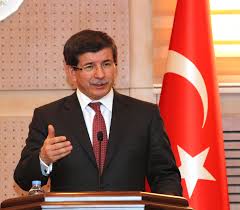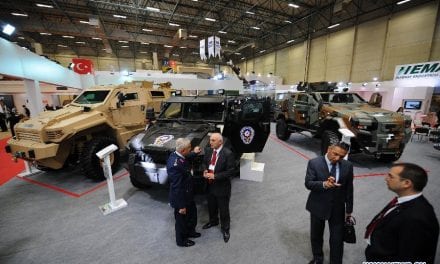By Zaman
Two weeks after Turkey and EU signed a deal to stem the flow of refugees from Turkey to the EU, the bloc has finally cleared the way for the opening of at least one of the five chapters that are currently closed in Turkey’s long-stalled EU accession process.
Prime Minister Ahmet Davutoğlu announced on Friday that Chapter 17 on Economic and Monetary Policy will be opened for discussions and negotiations on Dec. 14, confirming earlier statements by Turkish Ambassador to the EU Selim Yenel who said Chapter 17 will be opened for discussions and negotiations on Monday of next week.
Yenel also expressed his hopes for further progress on the other chapters that are currently the subject of disputes between Ankara and Brussels. “Chapter 17, which has for a long time been blocked by France, has been under discussion. There have been preparations throughout the year and eventually it is to be opened next week,” Yenel said.
He also said that the year 2016 would be “fruitful” in terms of the acceleration of Turkey’s accession negotiations to the EU if the decades-old dispute over the ethnically divided island of Cyprus is resolved. Speaking to Turkish media, Yenel said that negotiations with the EU had been at a standstill for the past five years but had been revitalized with the emergence of the refugee crisis in the EU. If the Cyprus problem can be resolved, Yenel said, other chapters will be opened rapidly.
In a summit held on Nov. 29, the EU has pledged to lift visa requirements for Turkish citizens travelling to the EU as well as to speed up talks on accession to the union in return for Turkey halting the flow of refugees to the EU.
Davutoğlu said Turkey expects the EU to lift visa requirements for Turkish citizens as of October. “In line with what we decided in the latest EU summit, we should make the legal regulations until March, the EU should prepare its [progress] report in March and then we should ensure a full transition to visa exemption as of October,” Davutoğlu said.
In a summit held on Nov. 29, the EU has pledged to lift visa requirements for Turkish citizens travelling to the EU as well as to speed up talks on accession to the union in return for Turkey halting the flow of refugees to the EU.
Yenel said that Turkey expected the EU to lift visa requirements for Turkish citizens in the autumn of 2016. He added that the implementation of the Turkey-EU readmission agreement would be launched before its planned date.
On Dec. 16, 2013, Turkey and the EU signed an agreement to start a dialogue on visa liberalization in parallel with a readmission agreement that would result in illegal migrants who enter Europe via Turkey being returned to Turkey. The EU added a new layer to the agreement that was ratified by the Turkish Parliament in 2014 and envisages lifting visa requirements for Turkish citizens in 2017 and accepted Ankara’s demand for the removal of any requirement for Turks in 2016.
The refugee deal faces severe challenges in execution and has been criticized both in Turkey and across the EU, where critics have voiced ethical concerns about the deal. Critics of the deal, which proposes the provision of at least 3 billion euros as financial assistance to Ankara to ease some of its burden in meeting the needs of 2.2 million refugees, say that lifting the visa requirements means rewarding a government that they say is sliding toward authoritarianism.
The urgent need to stem the refugee flow to the EU has pushed the bloc to work with Turkish President Recep Tayyip Erdoğan, who is unpopular among EU leaders in Brussels for his behavior toward the political opposition and independent media outlets. The dismal state of freedoms and growing obstacles for critical voices in Turkey have not gone unnoticed in Brussels, but such concerns have been mostly sidelined after the EU sought Ankara’s help to solve the refugee crisis.



















